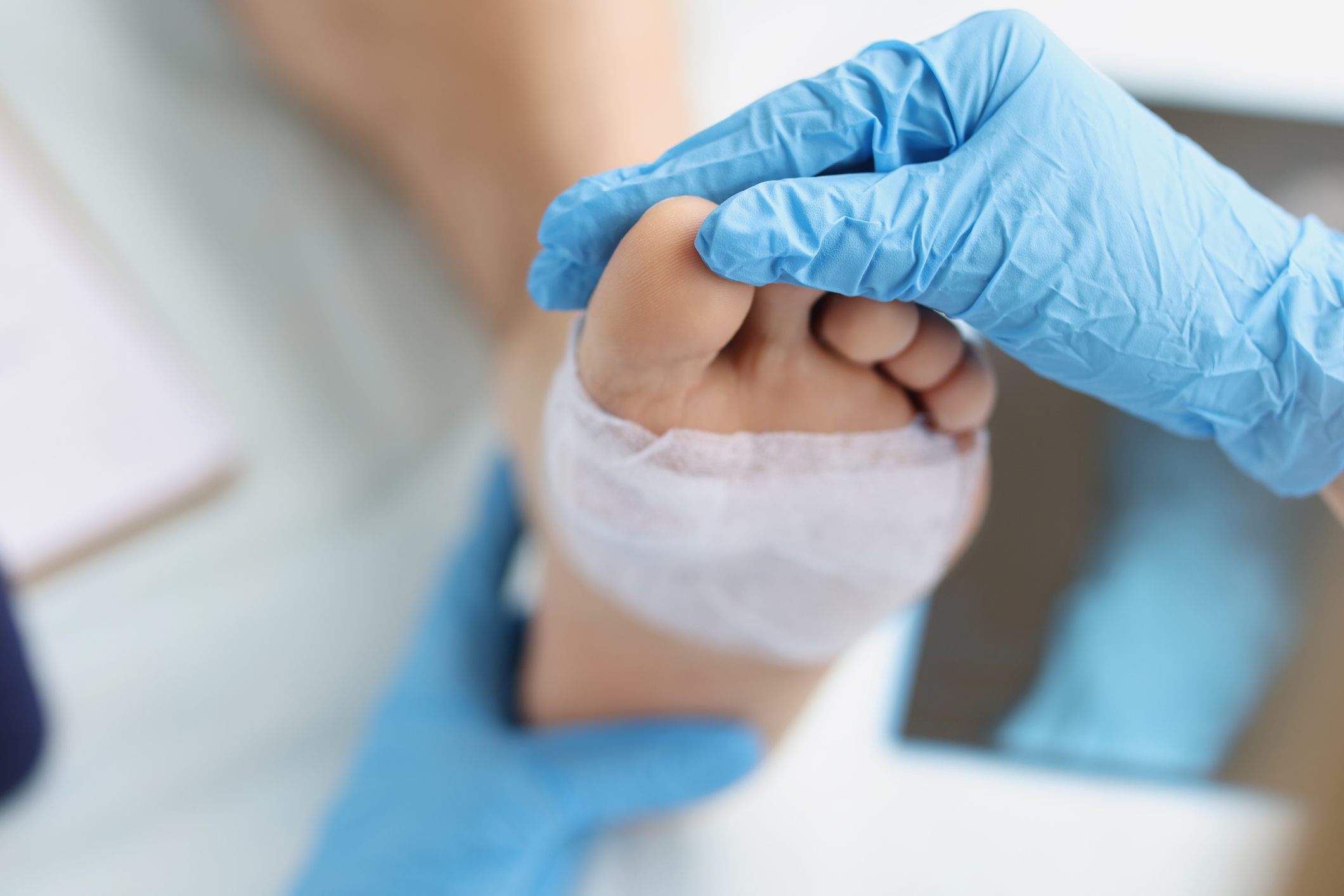Chronic wounds, those that resist healing for more than four weeks, can be a frustrating and debilitating experience. They not only cause physical discomfort but also impact emotional well-being and quality of life. Fortunately, with proper wound care strategies and early intervention, even non-healing wounds can be brought under control and ultimately reach closure.
Understanding Non-Healing Wounds:
Several factors can contribute to a wound’s inability to heal effectively. Here are some common culprits:
- Poor Circulation: Insufficient blood flow to the wound site can impede the delivery of oxygen and nutrients needed for healing.
- Infection: Bacteria or other microorganisms can invade the wound, hindering the healing process and potentially leading to serious complications.
- Diabetes: This chronic condition can impair blood flow and weaken the immune system, making wounds more susceptible to infection and delaying healing.
- Obesity: Excess weight can put pressure on wounds and impede circulation, hindering the healing process.
- Malnutrition: Lack of essential nutrients can hinder cell growth and tissue repair, crucial for wound healing.
- Medications: Certain medications, like steroids, can interfere with the body’s natural healing response.
Effective Care Strategies for Non-Healing Wounds:
Addressing the underlying cause of the non-healing wound care is essential for promoting closure. Here are some approaches commonly employed:
- Debridement: This involves removing dead or infected tissue from the wound bed, creating a clean environment for healing.
- Wound Dressings: Specialized dressings can promote healing by creating a moist wound environment, absorbing exudate (wound fluid), and providing protection from infection.
- Compression Therapy: For wounds on the legs, applying compression bandages can improve blood flow and reduce swelling.
- Nutritional Support: Ensuring adequate intake of protein, vitamins, and minerals is crucial for providing the body with the building blocks needed for tissue repair.
- Infection Control: Meticulous wound cleaning and proper dressing changes are essential to prevent and manage infection. Antibiotics may be necessary in some cases.
- Hyperbaric Oxygen Therapy: This therapy involves exposing the wound to pure oxygen in a pressurized chamber, which can promote healing in specific chronic wound cases.
Seeking Professional Help:
If you have a wound that isn’t healing within a reasonable timeframe (typically 4 weeks), it’s crucial to seek professional medical attention. Early intervention can significantly improve healing outcomes and prevent complications. A physician will assess the wound, identify the underlying cause, and develop a personalized treatment plan.
The Role of Infection Prevention Consultants:
infection prevention consulting offers a comprehensive range of services to healthcare facilities, including:
- Risk Assessment: They evaluate a facility’s current infection prevention practices and identify areas for improvement.
- Development of IP Programs: IP consultants collaborate with healthcare personnel to develop and implement effective infection control policies and procedures tailored to the specific needs of the facility.
- Staff Education and Training: Providing ongoing education and training for healthcare staff on proper hand hygiene, sterile technique, and other infection prevention protocols is crucial. IP consultants can develop and deliver educational programs to ensure staff competency.
- Outbreak Investigation and Management: In the unfortunate event of an outbreak, IP consultants can assist in identifying the source of the infection, implementing control measures, and preventing further spread.
- Data Analysis and Reporting: Monitoring and analyzing data on infection rates is essential for tracking progress and identifying areas for further improvement. IP consultants can help healthcare facilities develop effective data collection and analysis systems.
Conclusion:
Non-healing wounds and hospital-acquired infections can pose significant challenges in the healthcare setting. However, with a comprehensive approach to wound care and the expertise of infection prevention consultants, healthcare professionals can create a safer and more effective healing environment for patients.




